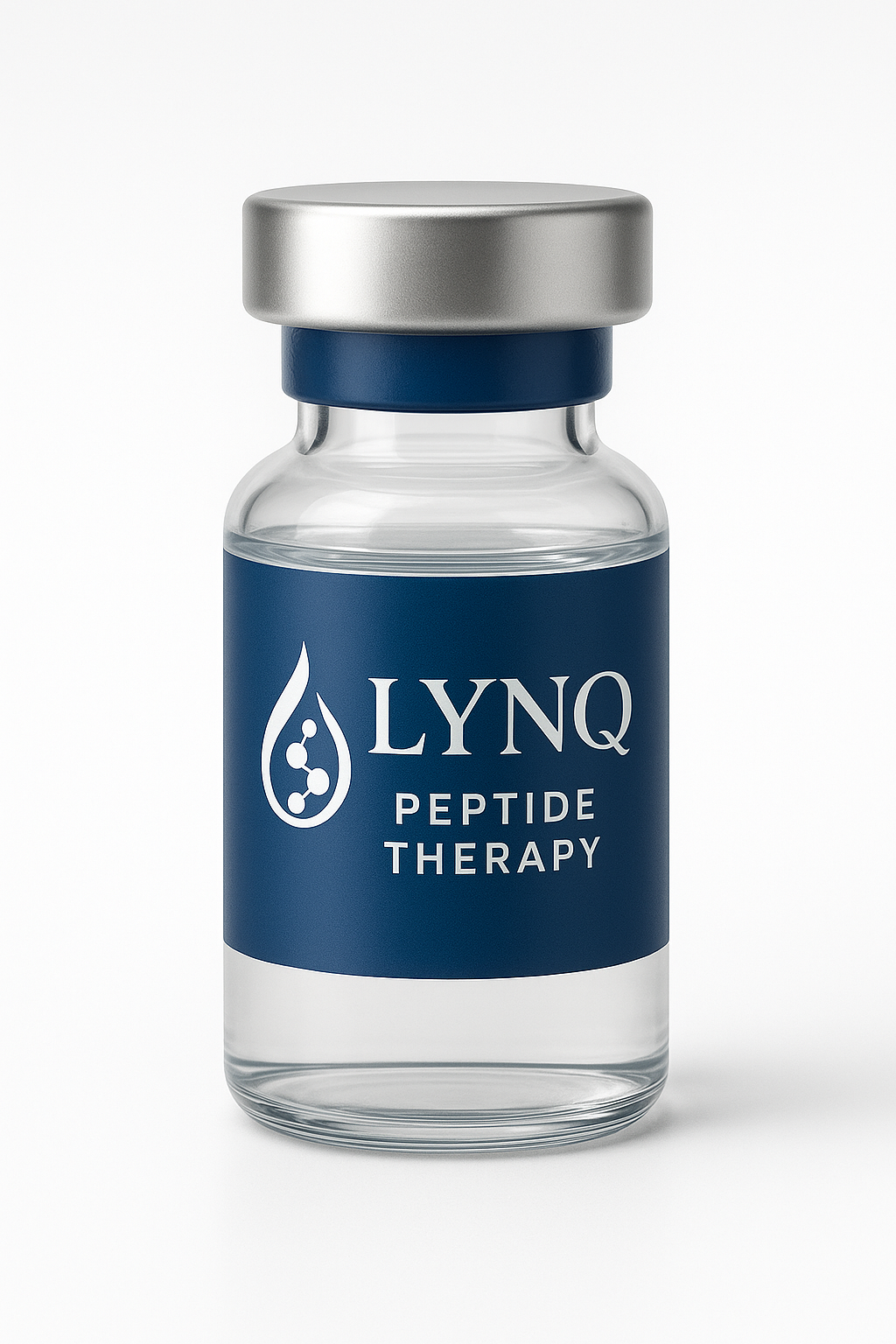What is Cagrilintide?
Cagrilintide is a long-acting synthetic peptide designed as a dual agonist for amylin and calcitonin receptors (DACRA), derived from human amylin and modified with a fatty acid chain to prolong its activity. It is currently studied in laboratory models for its effects on appetite control, energy balance, and metabolic function. Research highlights its role in suppressing food intake and slowing gastric emptying without directly indicating human therapeutic use.
What Are the Effects of Cagrilintide?
- Appetite Suppression & Gastric Motility: In preclinical and early human studies, cagrilintide engages amylin receptors in areas like the nucleus tractus solitarius and area postrema, reducing food consumption and delaying gastric emptying.
- Synergistic Weight Reduction in Combination Therapy: Studies combining cagrilintide with semaglutide demonstrated up to ~17% weight reduction—significantly greater than either peptide alone—supporting enhanced energy balance outcomes in research settings.
- Metabolic & Glycemic Control: Cagrilintide monotherapy and combination approaches lowered glucagon levels, improved HbA1c by approximately 2.2%, and stabilized fasting glucose in diabetic models.
- Extended Duration of Action: The fatty acid-mediated half-life of ~159–195 hours supports prolonged receptor activation and sustained effects in weekly dosing protocols.
- Safety Observations:Clinical trials report tolerability similar to comparator peptides, with gastrointestinal events as the most common findings, and no indication of endocrine disruption in controlled research.


